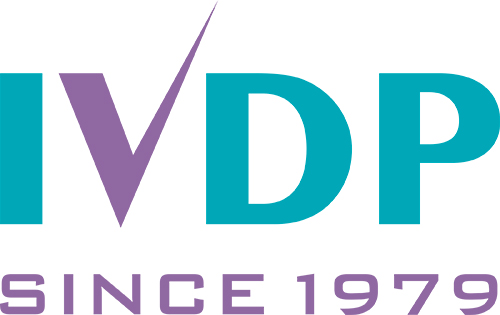Source : The Hindu News – 21.11.2012
As Arvind Kejriwal, a Magsaysay awardee, spotlights the dark side of politics, this year’s award winner reveals its brighter side, from a small corner in northern Tamil Nadu.
That small corner is between Bangalore and Chennai, in somnolent, dusty and hot Krishnagiri town. In fact, climb onto any bus headed to the hinterlands and, intriguingly, you will stumble upon women wearing saris of the same colour. Strain your neck and look further on the road when they get off the bus and you will find colour-coded groups of women, clutching massive tote bags with giant registers, clustered excitedly together in front of an office. You might wonder, what is going. The answer is Mr. Kulandai Francis’s Integrated Village Development Project (IVDP).
His extremely modest beginnings and the birth of his organisation are by now familiar. Born to parents who sold salt and other groceries on the streets of a small town in then Salem district, his rise is one of immense struggle and sacrifice. He graduated and became a priest only to abandon it and serve humanity at large, starting at Nettramapalyam village in Krishnagiri district. He began the IVDP in 1979 and started organising self-help groups (SHG) to build check dams and prevent rainwater run-off. He stumbled and persisted for 10 years.
Around the same time, IVDP was one of the 36 designated non-governmental organisations (NGO) chosen by the multilateral agency International Fund for Agricultural Development (IFAD) to implement its microcredit project. However, poor targeting, low repayment rates and financial malfeasance in the first five years led to the blacklisting of 20 NGOs in 1996. As many as 16 were from Dharmapuri district alone but the pioneer microcredit NGOs, Myrada and IVDP were left untouched. A few years later, IVDP was the only NGO among several that had proliferated in Dharmapuri in the mid-1990s, to have withstood the purge.
And IVPD has remained unscathed through successive changes in government. From 2001, Tamil Nadu’s structural adjustment necessitated budgetary cuts and weaning away many established NGOs that had survived on government funding, for the sake of newer and fledgling NGOs. Despite being a decade old, IVDP was still short of funds because it had stayed away from international institutional funding for its self-help group programmes. However, perpetual scorn from the bureaucracy eventually led to a parting of ways in 2003 when Francis refused to bribe a district official.
Growing trajectory
IVDP did not stop though; it had 61,253 members in seven blocks of Krishnagiri district by 2004, credit delivery of up to Rs.200 crore, 331 major and minor check dams, had planted 2,50,000 trees and helped build 3,343 homes. In 2005, the self- help groups (not IVDP) donated Rs.27 lakh as a revolving fund to 110 other self-help groups organised as part of tsunami relief ( The Hindu, August 13, 2005). Not surprisingly, IVDP always secured either first or second position in National Bank for Agriculture and Rural Development (Nabard) State-level awards for self-help group (SHG) linkage every year since 2001. Today, IVDP has: a multi-storeyed office, tripled its coverage and expanded to three districts, provides life insurance, livelihood training, scholarships, curricular aids, and has a computer academy and a website.
Blacklisting and rationalisation as administrative policies in a highly charged politically competitive environment could be interpreted as purging strategies to bring in loyalist NGOs, but IVDP has survived and grown under both regimes. How did it survive successive regimes, and why did it succeed? The “how” question, that is, the mechanics of growth, is easy to establish — Francis’s resolve, organisational capacity and iterative institutional learning were key ingredients.
The “why” question, i.e. the context behind the mechanics, illuminates the bright side of competitive populism. The outbidding nature of Tamil Nadu’s politics is well known — ‘y’ will seek to outdo ‘x’s initial offer of TVs, by offering computers — and has high opportunity costs. Notwithstanding costs, political parties in perpetual populist campaign mode might not trouble “good” things. If IVDP is legitimate and highly popular, why hurt government credibility by blacklisting or weaning it away?
Why don’t populist parties trouble “good” things when many other parties get away with “bad” things? Political Science scholarship suggests that the nature of linkages established by populist parties with voters makes the difference. Populist parties rely on charismatic leaders who directly appeal and connect with the “ Makkal” (el pueblo, vox populi) and deliver redistributive goods to them by centralising control after they come to power. Political parties in Tamil Nadu have been tightly controlled ships run by leaders who had mass appeal before they entered politics.
Clientelist parties on the other hand, make populist appeals, but know that their votes lie in the power of local bosses and their networks. Uttar Pradesh Chief Minister Akhilesh Yadav might promise laptops, but he knows that his electoral fortunes rest neither on laptops nor electricity but on how the vote is coerced, and how velvety the gloves to handle his cabinet colleagues are. So scaled-up IVDPs are ignored in Tamil Nadu because contravening popular interests can prove politically dangerous. But they will not be ignored in Uttar Pradesh if they threaten the power structures of local bosses.
Will populist parties always keep a distance from legitimate organisations? Not necessarily, as the populist leader could ignore local infractions. At the same time, however, scaled-up organisations have the gumption to stand up, like Mr. Francis did.
Can clientelist parties encourage legitimate organisations? Because the top leader’s charisma has to overshadow the party machine and its local bosses (Tamil Nadu politicians were stars of movies that are still very popular), bringing in the vote is difficult — for example, Akhilesh Yadav is powerless without his cabinet.
Will, then, all “good” organisations do well in Tamil Nadu? Because NGOs like IVDP are more the exception than the norm, to generalise from one example can be counterproductive. NGO leaders like Mr. Francis are an exception and he deserves to be complimented but his success also sheds light on the political context that inadvertently contributed to his ongoing success.
(Srikrishna Ayyangar is professor at Azim Premji University and is interested in the area of comparative political economy.)
The Hindu news 21.11.2012 |

